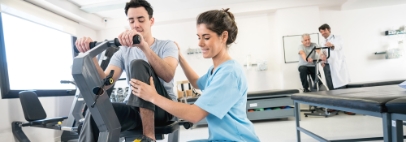- Monday to Friday from 8.00 - 12.00 and 13.00 - 17.00
When the muscles weaken
Typical signs of loss of strength in old age are limitations in everyday activities (e.g. when standing up or sitting down from or on a chair), reduced walking speed (e.g. difficulty crossing a road when the light turns green), increased risk of falling or reduced immunocompetence (depending on the extent of the sarcopenia).
Psychological side effects of sarcopenia are a reduction in cognitive abilities. This concerns
- Language
- Memory
- Reflection
- Decision-making ability
- Problem-solving behaviour


.jpg)

